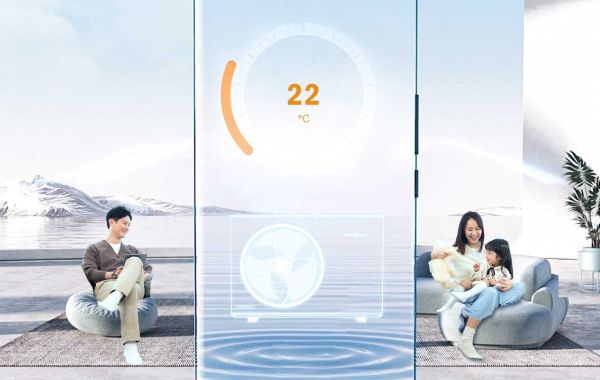As the temperature rises, it’s important to have a reliable and efficient cooling system in your home. Two popular options are air conditioners and air source heat pumps. While both provide cool air, they work differently and have their own advantages and disadvantages. In this article, we’ll take a closer look at air conditioners and air source heat pumps and help you decide which one is best for your home.
Air Conditioners: How They Work
Air conditioners are a popular choice for cooling homes and buildings. They work by removing heat and moisture from the air inside your home and releasing it outside. There are two main types of air conditioners: window units and central air conditioning systems.
Window air conditioners are designed to cool a single room or small area. They are typically installed in a window and are easy to use and maintain. Central air conditioning systems, on the other hand, cool an entire home or building and require complex ductwork and installation.
Advantages of Air Conditioners
One of the biggest advantages of air conditioners is their affordability. Window units are relatively inexpensive and can be purchased and installed quickly. Central air conditioning systems may be more expensive, but they can increase the value of your home and provide a significant return on investment.
Another advantage of air conditioners is their ability to cool a room or building quickly. They are also easy to use and maintain, with most window units requiring only a simple cleaning and filter replacement. Central air conditioning systems may require more maintenance, but they can be serviced by a professional HVAC technician.
Disadvantages of Air Conditioners
One of the biggest disadvantages of air conditioners is their energy consumption. Window units and central air conditioning systems use a lot of energy to cool your home, which can lead to high energy bills. They also rely on refrigerants that can be harmful to the environment.
Another disadvantage of air conditioners is their noise level. Window units can be noisy, especially when they are running at full capacity. Central air conditioning systems are quieter, but they can still produce noise from the outdoor unit.
Air Source Heat Pumps: How They Work
Air source heat pumps are a type of heating and cooling system that uses electricity to transfer heat between the inside and outside of your home. They work by absorbing heat from the outdoor air and transferring it inside your home during the winter months. In the summer, the process is reversed, and the heat pump absorbs heat from inside your home and releases it outside.
Unlike air conditioners, air source heat pumps can provide both heating and cooling, making them a versatile and efficient option for year-round comfort. They are available in two main types: air-to-air and air-to-water.
Air-to-air heat pumps circulate hot or cold air through your home using a duct system, while air-to-water heat pumps transfer heat to water and distribute it throughout your home using a hydronic heating system.
Advantages of Air Source Heat Pumps
One of the biggest advantages of air-source heat pumps is their energy efficiency. They can provide both heating and cooling using electricity, which is a cleaner and more efficient energy source than fossil fuels. This can lead to significant savings on your energy bills.
Another advantage of air-source heat pumps is their versatility. They can be used for both heating and cooling, making them a year-round solution for your comfort needs. They are also available in different types, including air-to-air and air-to-water, which can be customized to meet your specific heating and cooling needs.
Disadvantages of Air Source Heat Pumps
One of the biggest disadvantages of air-source heat pumps is their initial cost. They can be more expensive than air conditioners, especially when you factor in installation costs. However, over time, they can provide significant savings on your energy bills, which can offset the initial cost.
Another disadvantage of air-source heat pumps is their performance in extremely cold temperatures. They rely on outdoor air to provide heat, which can be a challenge in areas with very low temperatures. However, newer models are designed to work in colder climates, so this may not be as much of an issue as it once was.
 air source heat pump manufacturer
air source heat pump manufacturer
Which One Is Best for Your Home?
Choosing between an air conditioner and an air source heat pump ultimately depends on your specific needs and preferences. If you live in an area with mild temperatures and only need cooling, an air conditioner may be the best option. If you live in an area with extreme temperatures and need both heating and cooling, an air-source heat pump may be the better choice.
Other factors to consider include your budget, energy efficiency goals, and the size of your home. If you’re not sure which option is best for your home, consult with a professional HVAC technician who can help you make an informed decision.
Air Conditioners vs. Air Source Heat Pumps: A Comparison
To help you make a more informed decision, let’s take a closer look at some of the key differences between air conditioners and air source heat pumps.
Energy Efficiency
One of the biggest differences between air conditioners and air source heat pumps is their energy efficiency. Air source heat pumps are more energy-efficient than air conditioners because they use electricity to transfer heat rather than generate it. This can lead to significant savings on your energy bills, especially if you use your cooling system frequently.
Air conditioners, on the other hand, use a lot of energy to cool your home, which can lead to high energy bills. They also rely on refrigerants that can be harmful to the environment.
Heating and Cooling
Another major difference between air conditioners and air source heat pumps is their ability to provide heating as well as cooling. Air conditioners are designed only to cool your home, while air-source heat pumps can provide both heating and cooling. This makes air-source heat pumps a more versatile and efficient option for year-round comfort.
Noise Level
Air conditioners can be noisy, especially window units. Central air conditioning systems are quieter, but they can still produce noise from the outdoor unit. Air source heat pumps are generally quieter than air conditioners, making them a good option if you’re looking for a quiet cooling system.
Installation and Maintenance
Air conditioners are relatively easy to install and maintain, especially window units. Central air conditioning systems require more complex installation and maintenance, but they can be serviced by a professional HVAC technician.
Air source heat pumps require professional installation and maintenance, which can be more expensive than air conditioners. However, they require less maintenance overall than air conditioners, which can save you time and money in the long run.
Cost
Air conditioners are generally less expensive than air source heat pumps, especially window units. Central air conditioning systems can be more expensive, but they can increase the value of your home and provide a significant return on investment.
Air source heat pumps are more expensive than air conditioners, especially when you factor in installation costs. However, over time, they can provide significant savings on your energy bills, which can offset the initial cost.
Environmental Impact
Air source heat pumps are more environmentally friendly than air conditioners because they use electricity to transfer heat rather than generate it. This can lead to a reduction in greenhouse gas emissions and a smaller carbon footprint.
Air conditioners rely on refrigerants that can be harmful to the environment, making them less environmentally friendly than air source heat pumps.
Conclusion
Choosing between an air conditioner and an air source heat pump ultimately depends on your specific needs and preferences. If you live in an area with mild temperatures and only need cooling, an air conditioner may be the best option. If you live in an area with extreme temperatures and need both heating and cooling, an air-source heat pump may be the better choice.
Other factors to consider include your budget, energy efficiency goals, and the size of your home. If you’re not sure which option is best for your home, consult with a professional HVAC technician who can help you make an informed decision.
Ultimately, both air conditioners and air source heat pumps provide effective cooling solutions for your home. With the right choice, you can enjoy cool and comfortable indoor temperatures all year round.
ALSAVO as a heat pump producer Will always provide you with professional knowledge and excellent pool heat pump products.







